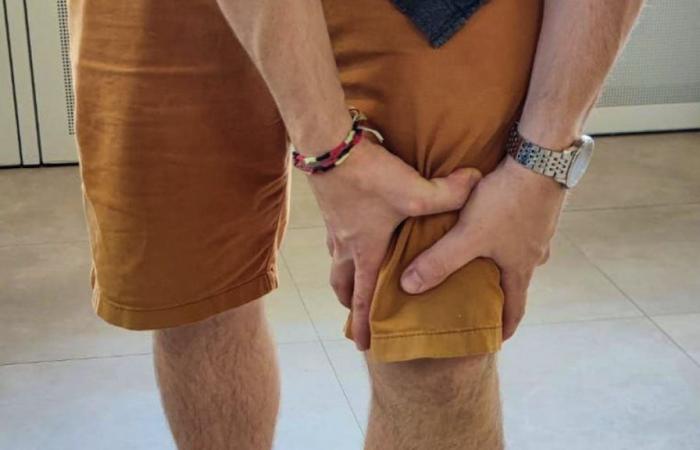For as long as he can remember, a single thought has obsessed him: “my left leg must disappear!” Since voluntary amputation is prohibited in Switzerland, Jonas* imagined different ways to achieve his goals: using dry ice to intentionally injure himself or passing his leg under a truck or a train. Another option being considered is having an operation in a foreign country, such as Mexico. Only one thing is holding back this German-speaking forty-year-old: he promised his wife not to self-mutilate as long as their two children were young.
This desire to get rid of a limb stems from a psychological problem, called body integrity identity disorder (BIID). Recognized by the World Health Organization (WHO) since 2022, this disease pushes patients to want to have one or more limbs amputated that they consider foreign. Some people dream of becoming deaf or blind, or of wearing a prosthesis. But, in most cases, these are men wishing to see their left leg disappear, like Jonas.
The latter, interviewed by the “Tages-Anzeiger”, explains that he is coming out of the woods today, to break a taboo. “I can understand how my desire for amputation may seem disconcerting. Especially for people who have lost a limb in tragic circumstances. But I also want to show what it means to live with a leg that does not belong to me,” he summarizes. Thus, even as a child, Jonas regularly sawed off a leg from his Playmobil figurines, to better identify with them.
Jonas is one of the patients of Zurich neuropsychologist Peter Brugger, who discovered that body parts not accepted by CIIC patients are insufficiently represented in the brain. “In such cases, the cerebral cortex is thinner,” explains Peter Brugger, who also points out that “Switzerland is at the forefront of research into this rare body schema disorder.”
Currently, there is no recognized therapy. Psychological consultations can help, but without making much difference. Encouraging results have also been obtained with virtual reality, with patients enjoying visualizing a stump in place of the limb that is bothering them. Finally, Jonas hopes that the usefulness of an operation will soon be medically accepted, as is the treatment of transsexuality today.






